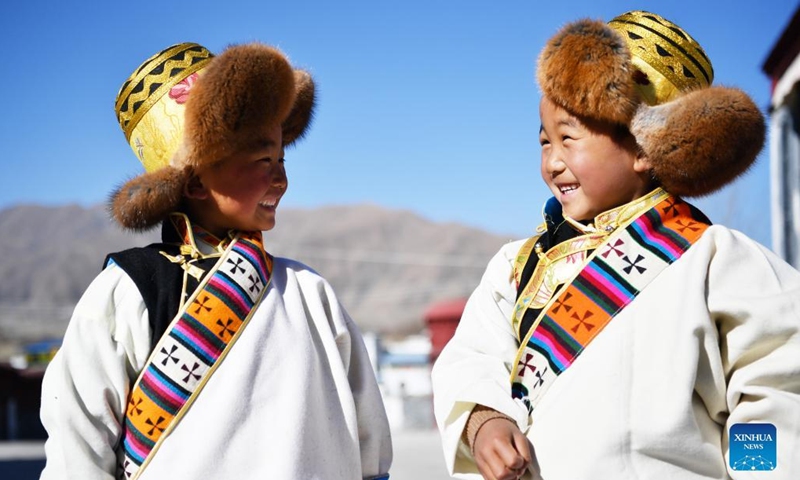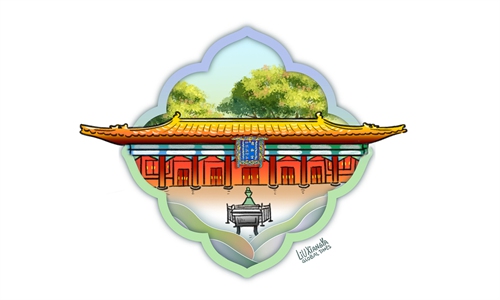Scholars, representatives of ethnic groups share human rights situation in China at UN meeting

Children dressed in traditional costumes celebrate the Tibetan New Year in Shannan, Southwest China's Xizang Autonomous Region, March 3, 2022. Photo: Xinhua
Boarding schools in China's Xizang Autonomous Region tackle education problems in the agricultural and pastoral areas and have helped to promote equality and high-quality development of education, a scholar from the region told an event held by Chinese nongovernmental organizations for minorities at the 52nd session of the UN Human Rights Council on Friday.
Li Xi, director of the China Association for Preservation and Development of Tibetan Culture, introduced the development of boarding schools in Xizang and said they have been set up in many places across China in accordance with parents and students' needs. All these schools have attached great importance to a family's involvement in the student's education.
Li's introduction debunked disinformation propagated by anti-China forces about China imposing boarding schools in Xizang for the purpose of "assimilation."
Scholars of ethnic minorities in China who come from other regions also attended the Friday event, which was held by the China Ethnic Minorities' Association for External Exchanges.
Zunong Nasierding a Uygur scholar from Minzu University of China, shared his education experience and noted that he had received education in schools in the Uygur language. He took the college entrance exam in Uygur and got his PhD in Uygur language literature.
The scholar has also worked in teaching ethnic languages and has contributed to the preservation of the culture and language of ethnic groups.
Representatives of the Mongolian and Zhuang ethnic groups also delivered keynote speeches on topics of how Chinese modernization promotes the rights protection of ethnic groups and how different ethnic groups work together for the rejuvenation of the Chinese people.
China has put the people first when protecting the rights of the ethnic groups. However, some countries and organizations are spreading disinformation on its policies with the purpose of smearing and containing China, said Li Huancai, vice-chairman of the China Ethnic Minorities' Association for External Exchanges.
Li expressed hope for the international community to know more about China's ideals and practices in safeguarding the rights of ethnic minorities.
Christoph Stueckelberger, president of the Geneva Agape Foundation, also participated in the Friday event and said that he saw with his own eyes the harmonious scenes of different ethnic minorities living, studying and working together in China. He was impressed by the degree of respect and unity. The various patterns of human rights protection and development should be respected, said Stueckelberger.
Chinese people use pomegranate seeds as a metaphor to describe how different ethnic groups in China have united together, said Mark Levine, an American expert at Minzu University of China, noting that his students from different ethnic groups are proud of being Chinese.



